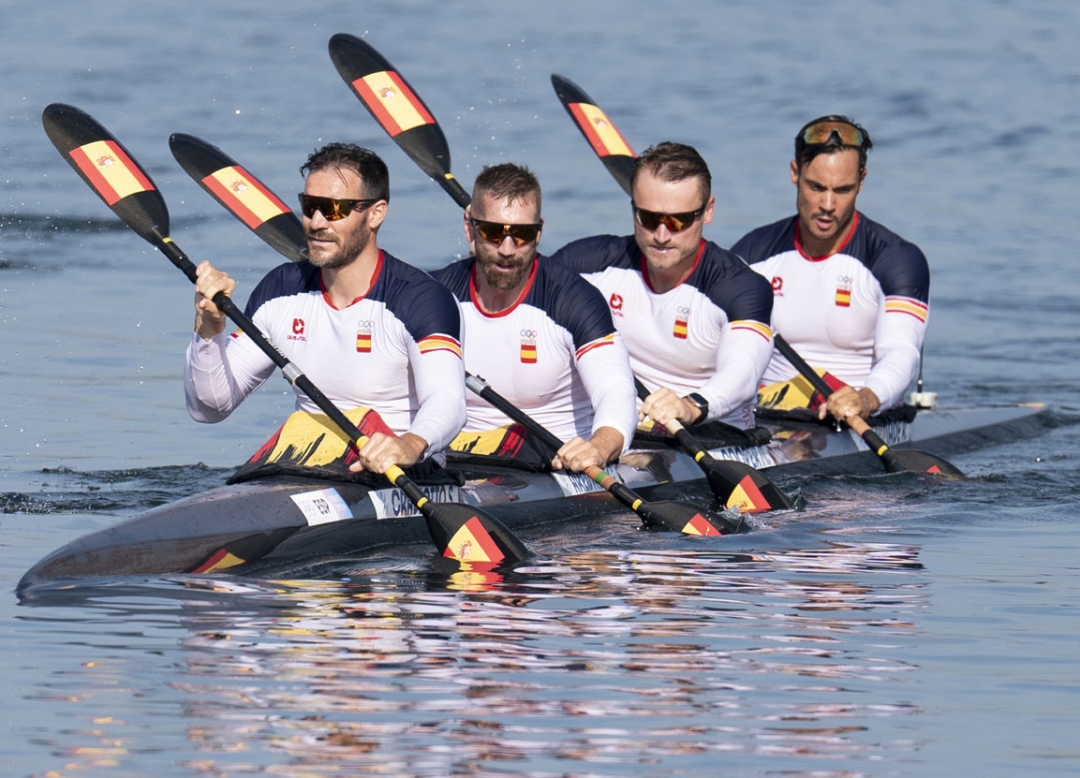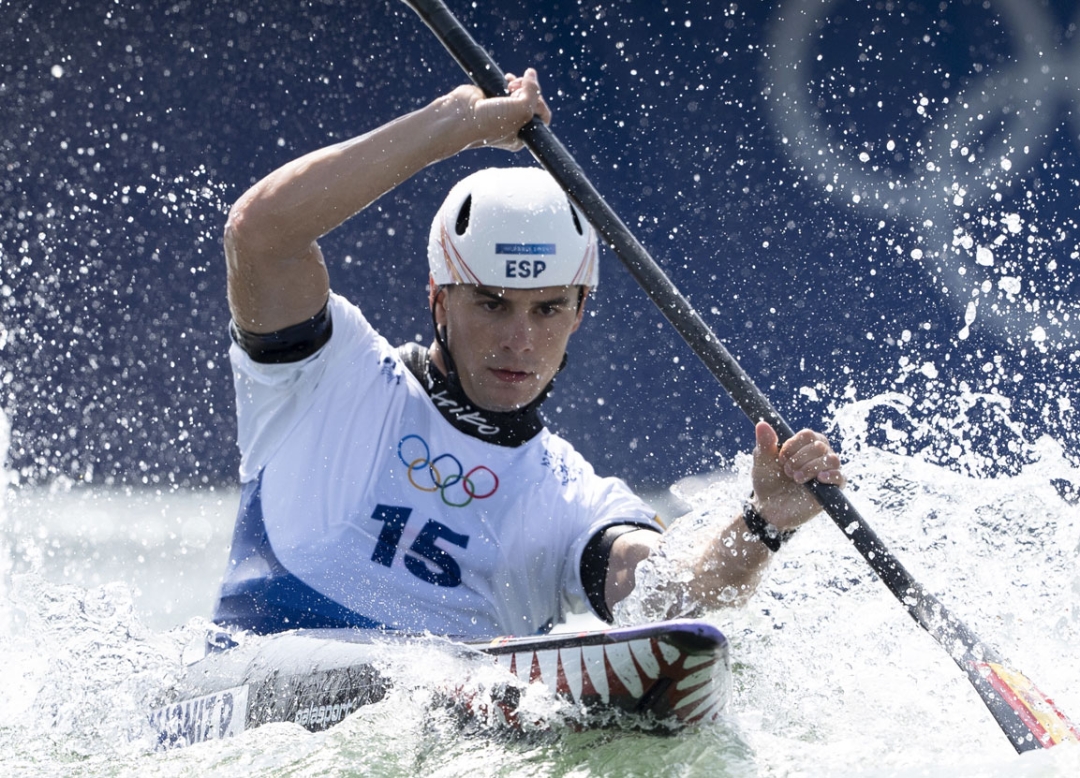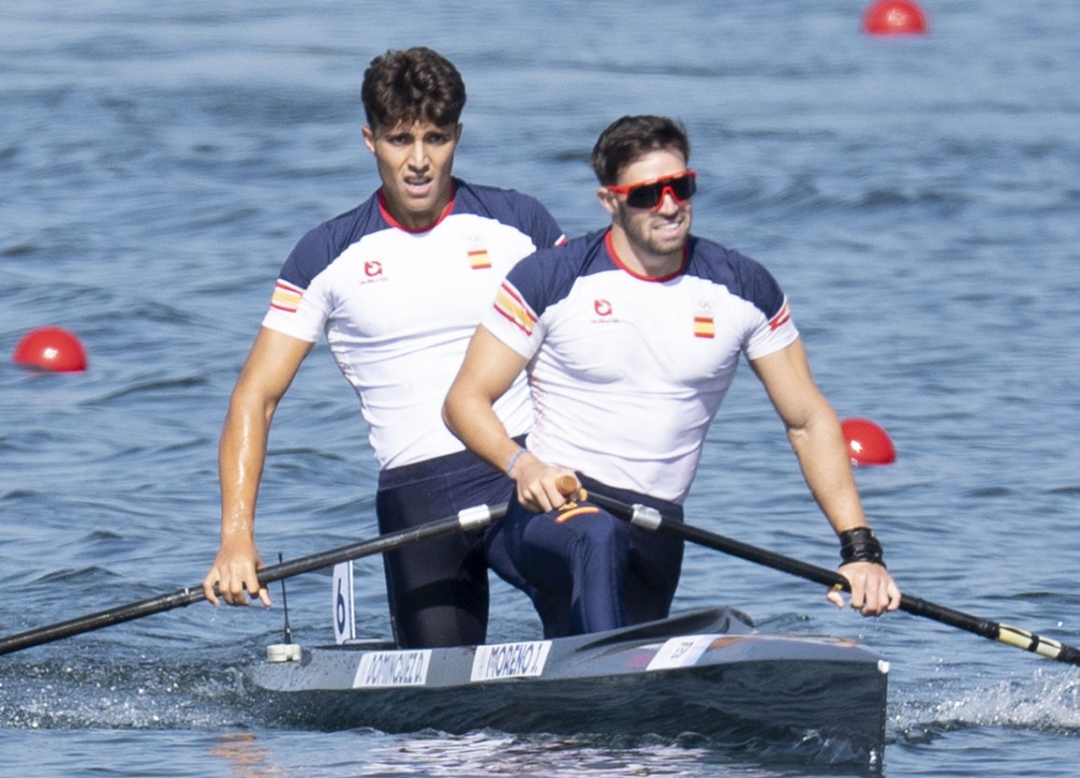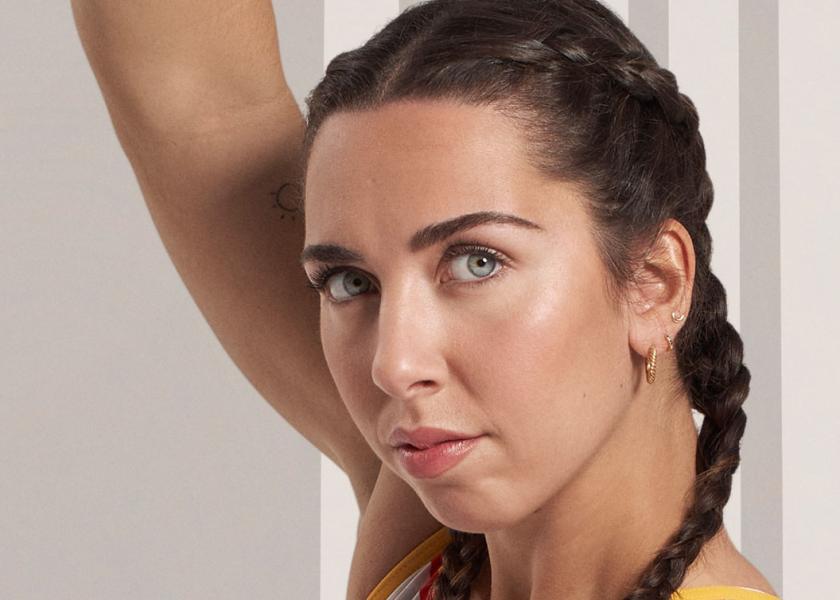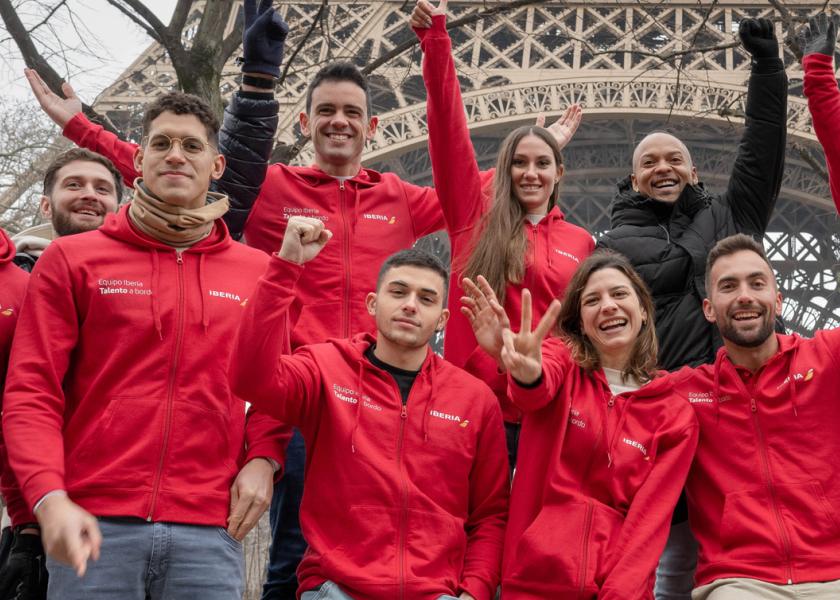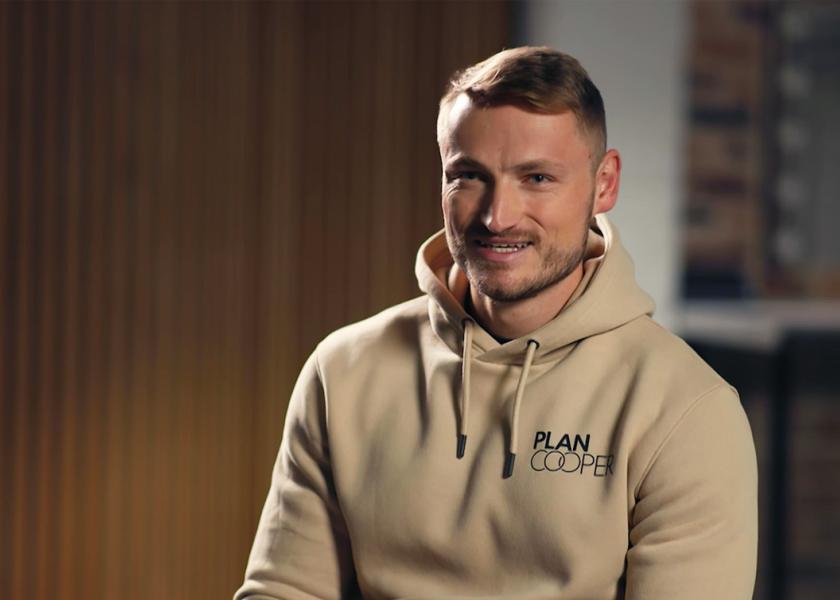Spanish canoeing
The secret to success
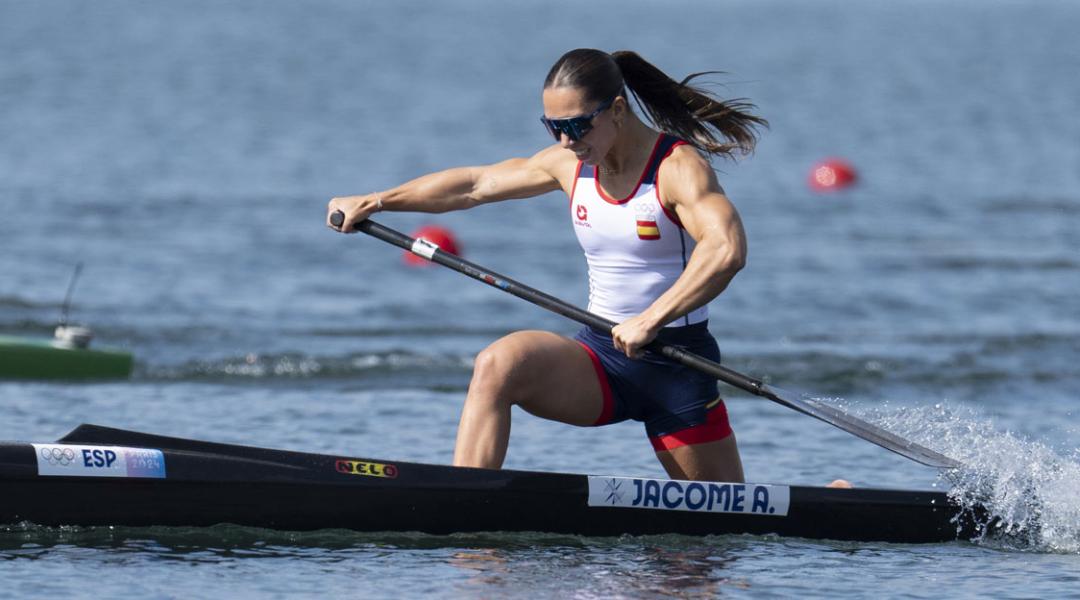
Canoeing has turned into the Olympic sport that has won Spain the most titles with 23 medals, surpassing sailing. What’s the secret? We analyse the keys to its success alongside canoeists and members of the Iberia Talento a bordo Team, Marcus Cooper and Antía Jácome, London medallist and assistant coach, ‘Sete’ Benavides, and the president of the federation, Javier Hernanz.
Pride. That’s the first thing Marcus Cooper, Antía Jácome, Sete Benavides and Javier Hernanz confess to feeling when we remind them that their sport, canoeing, has won the most titles in the Spanish Olympics. During the recent Paris Games, Spanish canoeing won 23 medals —five gold, ten silver, and eight bronze medals— versus the 22 won by sailing. Pau Echaniz (bronze in K1 slalom), Joan Antoni Moreno and Diego Domínguez (bronze in C2 500 sprint) and Marcus Cooper, Saúl Craviotto, Carlos Arévalo and Rodrigo Germade (bronze in K4 500 sprint) were the last to swell the ranks with three new medals. For Marcus Cooper, who has done his part with a gold, a silver and a bronze, nothing would be possible without teamwork: “Canoeing is never an individual sport, it’s always a team sport and many people have been part of this success.” A team that, since November 2021, has been led by Javier Hernanz, president of the Royal Spanish Canoe Federation (RFEP): “The work that’s being done by the federation is very conscientious and meticulous and, in the end, that gives results.” Sete Benavides, who won a bronze medal at the London Games and is the assistant coach, celebrates the rewards reaped: “What shines the most light on our work is reaching the Games and winning the greatest number of medals.” Antía Jácome was just 42 hundredths of a second from the bronze this summer: “I was very close to the medals in Paris, so I’ll continue fighting to win them and elevate Spanish canoeing.”
The work is essential, but it’s applied to a raw material: talent. “Spanish canoeists are so talented —celebrates Cooper—, but that’s not enough. The federation takes care of all the details, including values like persistence and professionalism, that help us to grow.” “Spanish canoeing has a very good talent detection system and we open the doors to young people who immediately start competing against the best,” declares Hernanz, who perfectly knows how the federation shapes talent because he was an athlete before becoming the president. When we talk about talent, Benavides remembers the canoeist that played a leading role in the turning point for this sport: “Since the appearance of David Cal, we’ve had some great years. Medals in Athens, Beijing, London, Río de Janeiro, Tokyo, Paris... It’s amazing!” We should remember that Spanish canoeing went through its own journey through the desert: from 1984 to 2004 it didn’t win any medals. The rising star of Spanish canoeing, Jácome, comes from David Cal’s land, Galicia, and she defends another key role model: “When I was little, I always looked up to Teresa Portela, for whom Los Ángeles would be her eighth Games. Seeing her makes me consider a future that includes canoeing.”
“Canoeing is never an individual sport, it’s always a team sport and many people have been part of this success” — Marcus Cooper
Work, talent, what else? “We’re one big family and us athletes are just the tip of the iceberg —declares Cooper—. The technical and medical teams have the same ambition as the athletes and, thanks to them, we achieve remarkable results.” A family that gathers under a federation that, for Jácome, is on the right track: “The federation has changed considerably in recent years and that’s reflected in the sports results, which are improving.” According to Hernanz, the federation endeavours to take care of everything surrounding the athlete, to make their work easier: “For us, success means putting all the human and material means necessary at the athlete’s disposal during their preparation so they can maximise their performance.” And he adds: “In recent times, we’ve built up the technical teams with coach assistants so that coaches can take care of each athlete with care and resolve.” One of these assistant coaches is Benavides, who also defends the role of clubs: “Clubs train the pool of young athletes and without them, this wouldn’t be possible. The federation’s coaching staff later translates that groundwork into results.”
A sport in the present and the future
Spanish canoeing does not want to become a victim of its own success and aims to constantly improve. “At the federation —Hernanz assures us— we work to promote canoeing, so that more and more children start to practice this sport. It’s also important for parents to see that this is a sport their children can practice.” To achieve this, Jácome reminds us that role models are essential: “The main role models we have in Spain are the ones who encourage little ones to practice canoeing.” To improve that visibility, Cooper believes that canoeing must become more spectacular, whether by improving TV productions to make them more attractive or by promoting competitions that help fans to identify with athletes. “The Ciutat de Palma Trophy last September brought together some of the best canoeists in the world and will be a turning point in our sport —celebrates Cooper—. It was an incredible race, for real gladiators and the audience loved it.” Benavides asks for the spotlight to not only shine on canoeing every four years, but approaches improvements from his technical perspective: “Canoeing is a sport that is decided by tenths of a second and we must improve in competitiveness. Knowing how to manage the pressure on the day makes a substantial difference.”
“The main role models we have in Spain are the ones who encourage little ones to practice” — Antía Jácome
Spanish canoeing has set the bar high, but its president seems unconcerned because there’s a pool of young canoeists: “Absolute results are what stand out the most, but in the last two sub-23 World Championships we’ve beat medal records. Both in the male and female categories, the new generations are making quite an impression.” One of those already making a splash is Jácome, who at the tender age of 24 has already come second at four World Championships: “There’s a lot of future. Youngsters look up to us and do their best to emulate us. Now I feel like a role model for loads of girls and that makes me proud because I never had that.” Someone else who knows upcoming generations is Benavides: “You need to work with young people daily. Now we see them win medals and it looks easy, but it’s not. From experience I can say that we have a future full of hope in front of us, but I cannot assure you that they will win medals because competition is fierce, and pressure doesn’t help them. Youngsters need to enjoy themselves and we’ll see what their path will be.” Cooper, who highlights that canoeing is a complete sport because “it’s not just strength, resistance, technique or coordination, but everything at the same time,” trusts in the future: “Younger athletes see the results we achieve and that ambition rubs off on them; it’s not that they see not winning as a failure, but they do think that not fighting to win is weird. This winning streak is going to continue.” Words of a champion.
